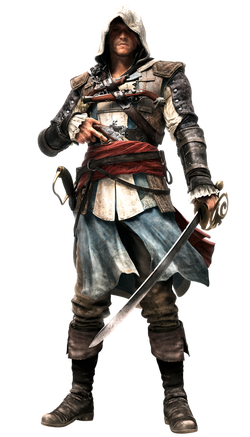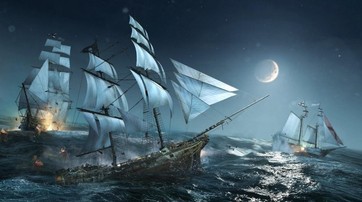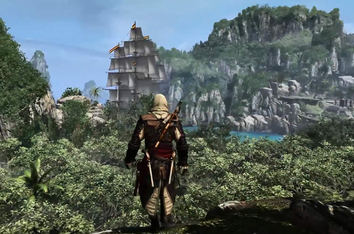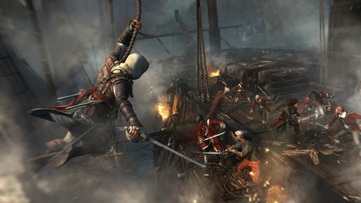
It's been seven months since Ubisoft last unleashed an Assassin's Creed game, which it seems has become an annual ritual for them. With two new installments on the horizon with AC: Unity and AC: Comet, it's time to take a look back on ACIV: Black Flag which, to me, is the very best of the Assassin's Creed series so far.

Needless to say that our new main character must enter a brand new type of Animus and – through drawing on the genetic memories of one Desmond Miles – is tasked with reliving the rumbustious antics of one Captain Edward Kenway during the Golden Age of Piracy. Edward is one of the feared pirates in charge of Nassau, the ‘pirate republic’, which faces being violently shut down by the British and other forces from across the sea. Edward is a man who is stuck between two worlds. On one hand he seeks to one day return home to England as a rich man, whilst on the other hand he craves the freedom that the ocean of the West Indies offers. Assassins and Templars are battling in the background of Edward’s story, which makes a welcome change as this ancient holy war has been at the forefront of each of the other games. We’re used to it by now. It’s just the Assassin’s Creed world.
Film composer Brian Tyler (who scored Iron Man 3, Thor: The Dark World, The Expendables, amongst others) provides an exciting and immersive soundtrack to each and every sequence, surmounting the subpar quality of Assassin’s Creed III’s soundtrack tenfold. The music to this game really adds to the overall cavalier feel of the gameplay whether you choose to progress with Edward’s adventures or explore the ‘real world.’

The naval combat of Assassin’s Creed III has been brought back and updated to a much larger scale, giving you full control over your ship and how it sails and fires. The gameplay here works through the player controlling the right analogue stick to pick a direction and, all depending on the chosen direction, they will be able to access to different weaponry automatically available to them on the ship. At first it can be a bit tricky as you feel as though you are multitasking and trying to balance the steering with the firing, but it just takes a little getting used to. It is certainly one of the best and most addictive elements of the game and the series so far. Just be wary of your surroundings. The ocean is filled with tiny islands and cliffs which you will crash into if you’re not careful! Whilst steering the ship, looking either left or right will automatically access the cannons; looking forwards will access a set of guns capable of paralyzing the enemy, looking backwards will access a batch of fire barrels (which can be shot at when enemy ships approach them). Players are also able to use mortar later, which is by far the most powerful of the ship’s weapons. It can be used to bombard enemy ships from above with fireballs. You can also choose to ‘release the wheel’ at any time. Doing so will revert back to the more traditional combat/gameplay of any previous Assassin’s Creed. Just be sure not to do it if you’ve got other ships firing on you!


After plundering an enemy ship you are then given three choices. I won’t reveal them all, but each has their own benefits. One of them has your crew use the wreckage to restore the Jackdaw to full health and then sink the remains, which you can use tactically if facing a fleet of ships (as they won’t attack you whilst you’re boarding another ship!). In terms of rewards in the new open world, Black Flag’s rendition of the West Indies is almost entirely driven by the pursuit of gold and there is much incentive here to make many purchases. What Assassin’s Creed has always struggled with in the past games is giving you significant stimulus to actually go out and play around with the side-missions (usually reserved for completionists).
Stay tuned at IWG for the second part of this article!

 RSS Feed
RSS Feed
